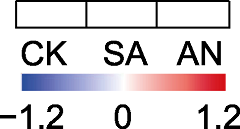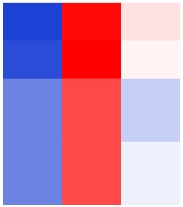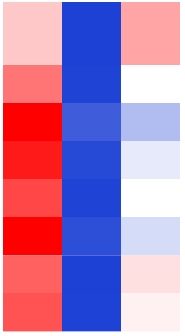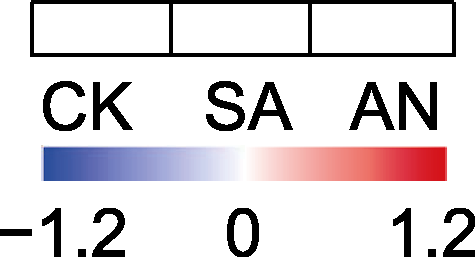

Chinese Bulletin of Botany ›› 2024, Vol. 59 ›› Issue (3): 397-413.DOI: 10.11983/CBB23130 cstr: 32102.14.CBB23130
• RESEARCH PAPERS • Previous Articles Next Articles
Xiao Liu1,2, Wanying Du1,2, Yunxiu Zhang2, Chengming Tang1,2, Huawei Li2, Haiyong Xia2, Shoujin Fan1, Ling’an Kong1,2,*( )
)
Received:2023-09-16
Accepted:2024-04-15
Online:2024-05-10
Published:2024-05-10
Contact:
Ling’an Kong
Xiao Liu, Wanying Du, Yunxiu Zhang, Chengming Tang, Huawei Li, Haiyong Xia, Shoujin Fan, Ling’an Kong. Nitrate-dependent Alleviation of Root Ammonium Toxicity in Wheat (Triticum aestivum)[J]. Chinese Bulletin of Botany, 2024, 59(3): 397-413.

Figure 1 Effects of different N treatments on the root growth of wheat seedlings (A) Net increases in root fresh weight of wheat seedlings at 24, 48, 72 and 96 h after different N treatments (data are means±SD of three independent experiments); (B) Phenotype of wheat seedling roots at 48 h after different N treatments (bar=10 cm). CK: 7.5 mmol·L-1 NO3- treatment; SA: 7.5 mmol·L-1 NH4+ treatment; AN: 7.5 mmol·L-1 NH4++1.0 mmol·L-1 NO3- treatment. * P<0.05; ** P<0.01

Figure 2 Paired comparisons of differentially expressed genes (DEGs) among different N treatments (A) Venn diagram of DEGs under different N treatments; (B) Statistical map of DEGs under different N treatments; (C) KEGG enrichment analysis of DEGs from SA vs CK comparison; (D) KEGG enrichment analysis of DEGs from AN vs SA comparison. CK, SA, and AN are the same as shown in Figure 1.

Figure 3 Changes in transcription level of DEGs involved in glycolysis, pentose phosphate pathway, pyruvate metabolism, TCA cycle, fermentation and shikimate pathway under different N treatments in the roots of wheat seedlings Squares from left to right indicate the expression level of this gene under CK, SA and AN treatments; the color scale indicates the relative gene expression, with blue color indicating lower expression and red color indicating higher expression. CK, SA, and AN are the same as shown in Figure 1.

Figure 4 Changes in transcription level of differentially expressed genes (DEGs) encoding ATP synthases under different N treatments in wheat roots The color scale indicates the relative gene expression, with blue color indicating lower expression and red color indicating higher expression. CK, SA, and AN are the same as shown in Figure 1.
| Gene ID | Gene relative expression level  | Gene description | Species | Reference |
|---|---|---|---|---|
| Respiratory burst oxidase homologs | ||||
| TraesCS5D01G105900 |  | Respiratory burst oxidase homolog protein B-like | Zea mays | Mira et al., |
| TraesCS1D01G284800 | Respiratory burst oxidase homolog protein B-like | Nicotiana tabacum | Zafari et al., | |
| TraesCS5A01G093600 | Respiratory burst oxidase homolog protein B-like | |||
| Alternative pathway | ||||
| TraesCS2A01G439400 |  | Mitochondrial alternative oxidase | N. tabacum | Zafari et al., |
| TraesCS2B01G459300 | Mitochondrial alternative oxidase | |||
| TraesCS2D01G212500 | Internal alternative NADPH-ubiquinone oxidoreductase A1, mitochondrial-like | Z. mays | Igamberdiev and Hill, | |
| TraesCS3D01G314700 | PREDICTED: external alternative NADPH-ubiquinone oxidoreductase B3, mitochondrial-like | |||
| O2-binding and Fe transport | ||||
| TraesCS1D01G340600 |  | Non-symbiotic hemoglobin-like isoform X1 | Oryza sativa | Narsai and Whelan, |
| TraesCS1B01G350800 | Non-symbiotic hemoglobin-like isoform X1 | |||
| TraesCS1A01G338400 | Non-symbiotic hemoglobin-like isoform X2 | |||
| TraesCS5A01G552000 | Nicotianamine synthase | Citrus junos | Xie et al., | |
| TraesCS6B01G425200 | Nicotianamine synthase | |||
| TraesCS6D01G148200 | Nicotianamine synthase | |||
| TraesCS2A01G049900 | Nicotianamine synthase | |||
| TraesCS6D01G382900 | Nicotianamine synthase-like 5 protein | |||
| Aquaporin | ||||
| TraesCS6A01G222100 |  | Probable aquaporin PIP2-2 | Glycine max | Matsuo et al., |
| TraesCS6D01G212900 |  | Probable aquaporin PIP2-2 | Sorghum bicolor | Kadam et al., |
| TraesCS2A01G407700 | Aquaporin PIP1-2 | |||
| TraesCS2D01G404800 | Aquaporin PIP1-2 | |||
| TraesCS2B01G077700 | Probable aquaporin PIP2-6 | |||
| TraesCS2D01G063900 | Probable aquaporin PIP2-6 | |||
| TraesCS6A01G405600 | Aquaporin PIP1-5-like | |||
| TraesCS2A01G198500 | Aquaporin PIP2-1 | |||
| TraesCS5D01G347600 | Nodulin-26 like intrinsic protein | Arabidopsis thaliana | Beamer et al., | |
| Ethylene signaling | ||||
| TraesCS2A01G026500 |  | 1-aminocyclopropane-1-carboxylate oxidase homolog 1-like | Cucumis sativus | Kęska et al., |
| TraesCS5A01G234200 | 1-aminocyclopropane-1-carboxylate oxidase 1-like | N. tabacum | Zafari et al., | |
| TraesCS7B01G110400 | 1-aminocyclopropane-1-carboxylate oxidase homolog 4-like | |||
| TraesCS2D01G028500 | 1-aminocyclopropane-1-carboxylate oxidase homolog 1-like | |||
| TraesCS4A01G221300 | 1-aminocyclopropane-1-carboxylate oxidase | |||
| TraesCS7B01G162100 | Ethylene-responsive transcription factor RAP2-6-like | A. thaliana | Hess et al., | |
| TraesCS6D01G281200 | Ethylene-responsive transcription factor RAP2-4-like | |||
| TraesCS1B01G243200 | Ethylene-responsive transcription factor RAP2-3-like | |||
| S-type anion channel | ||||
| TraesCS3A01G225100 |  | S-type anion channel SLAH3 | A. thaliana | Lehmann et al., |
| Allene oxide synthase (alpha-linolenic acid metabolism) | ||||
| TraesCS6D01G172200 |  | Allene oxide synthase 4-like | A. thaliana | Xie et al., |
| TraesCS5B01G408000 | Allene oxide synthase 1 |
Table 1 Genes related to hypoxic stress in the roots of wheat
| Gene ID | Gene relative expression level  | Gene description | Species | Reference |
|---|---|---|---|---|
| Respiratory burst oxidase homologs | ||||
| TraesCS5D01G105900 |  | Respiratory burst oxidase homolog protein B-like | Zea mays | Mira et al., |
| TraesCS1D01G284800 | Respiratory burst oxidase homolog protein B-like | Nicotiana tabacum | Zafari et al., | |
| TraesCS5A01G093600 | Respiratory burst oxidase homolog protein B-like | |||
| Alternative pathway | ||||
| TraesCS2A01G439400 |  | Mitochondrial alternative oxidase | N. tabacum | Zafari et al., |
| TraesCS2B01G459300 | Mitochondrial alternative oxidase | |||
| TraesCS2D01G212500 | Internal alternative NADPH-ubiquinone oxidoreductase A1, mitochondrial-like | Z. mays | Igamberdiev and Hill, | |
| TraesCS3D01G314700 | PREDICTED: external alternative NADPH-ubiquinone oxidoreductase B3, mitochondrial-like | |||
| O2-binding and Fe transport | ||||
| TraesCS1D01G340600 |  | Non-symbiotic hemoglobin-like isoform X1 | Oryza sativa | Narsai and Whelan, |
| TraesCS1B01G350800 | Non-symbiotic hemoglobin-like isoform X1 | |||
| TraesCS1A01G338400 | Non-symbiotic hemoglobin-like isoform X2 | |||
| TraesCS5A01G552000 | Nicotianamine synthase | Citrus junos | Xie et al., | |
| TraesCS6B01G425200 | Nicotianamine synthase | |||
| TraesCS6D01G148200 | Nicotianamine synthase | |||
| TraesCS2A01G049900 | Nicotianamine synthase | |||
| TraesCS6D01G382900 | Nicotianamine synthase-like 5 protein | |||
| Aquaporin | ||||
| TraesCS6A01G222100 |  | Probable aquaporin PIP2-2 | Glycine max | Matsuo et al., |
| TraesCS6D01G212900 |  | Probable aquaporin PIP2-2 | Sorghum bicolor | Kadam et al., |
| TraesCS2A01G407700 | Aquaporin PIP1-2 | |||
| TraesCS2D01G404800 | Aquaporin PIP1-2 | |||
| TraesCS2B01G077700 | Probable aquaporin PIP2-6 | |||
| TraesCS2D01G063900 | Probable aquaporin PIP2-6 | |||
| TraesCS6A01G405600 | Aquaporin PIP1-5-like | |||
| TraesCS2A01G198500 | Aquaporin PIP2-1 | |||
| TraesCS5D01G347600 | Nodulin-26 like intrinsic protein | Arabidopsis thaliana | Beamer et al., | |
| Ethylene signaling | ||||
| TraesCS2A01G026500 |  | 1-aminocyclopropane-1-carboxylate oxidase homolog 1-like | Cucumis sativus | Kęska et al., |
| TraesCS5A01G234200 | 1-aminocyclopropane-1-carboxylate oxidase 1-like | N. tabacum | Zafari et al., | |
| TraesCS7B01G110400 | 1-aminocyclopropane-1-carboxylate oxidase homolog 4-like | |||
| TraesCS2D01G028500 | 1-aminocyclopropane-1-carboxylate oxidase homolog 1-like | |||
| TraesCS4A01G221300 | 1-aminocyclopropane-1-carboxylate oxidase | |||
| TraesCS7B01G162100 | Ethylene-responsive transcription factor RAP2-6-like | A. thaliana | Hess et al., | |
| TraesCS6D01G281200 | Ethylene-responsive transcription factor RAP2-4-like | |||
| TraesCS1B01G243200 | Ethylene-responsive transcription factor RAP2-3-like | |||
| S-type anion channel | ||||
| TraesCS3A01G225100 |  | S-type anion channel SLAH3 | A. thaliana | Lehmann et al., |
| Allene oxide synthase (alpha-linolenic acid metabolism) | ||||
| TraesCS6D01G172200 |  | Allene oxide synthase 4-like | A. thaliana | Xie et al., |
| TraesCS5B01G408000 | Allene oxide synthase 1 |

Figure 5 Changes in transcription levels of differentially expressed genes (DEGs) encoding kinds of dioxygenases under different N treatments in roots of wheat seedlings The color scale indicates the relative gene expression, with blue color indicating lower expression and red color indicating higher expression. CK, SA, and AN are the same as shown in Figure 1.

Figure 6 RNA-seq data accuracy verification The X-axis and Y-axis represent the 2-ΔΔCT values for qRT- PCR analysis and the log2(FC) values for RNA-seq for comparisons of SA vs CK and AN vs SA, respectively. CK, SA, and AN are the same as shown in Figure 1.

Figure 7 Volcano plots of differentially expressed proteins (DEPs) under different N treatments in the roots of wheat seedlings (A) SA vs CK; (B) AN vs SA; (C) AN vs CK. Green dots indicate downregulated proteins, red dots indicate upregulated proteins and black dots indicate not significantly changed proteins. FC: Fold change. CK, SA, and AN are the same as shown in Figure 1.
| Protein ID | Protein expression | Protein description | ||
|---|---|---|---|---|
| Glycolysis | ||||
| CDM81680.1 | 6-phosphofructokinase 1 | |||
| SPT18714.1 | 6-phosphofructokinase 1 | |||
| AAO32641.1 | Phosphoglycerate kinase | |||
| CAA33303.1 | Phosphoglycerate kinase | |||
| CBN64599.1 | Phosphoglycerate kinase | |||
| CBG02671.1 | Pyruvate kinase | |||
| CBG02673.1 | Pyruvate kinase | |||
| CDM82952.1 | Pyruvate kinase | |||
| Pyruvate metabolism | ||||
| AIV42031.1 | Pyruvate dehydrogenase E2 component | |||
| CCA64976.1 | Pyruvate dehydrogenase E1 component beta subunit | |||
| SPT15511.1 | Pyruvate dehydrogenase E1 component alpha subunit | |||
| CAW61069.1 | Phosphoenolpyruvate carboxylase | |||
| CDM84220.1 | Phosphoenolpyruvate carboxylase | |||
| ABW77317.1 | Malic enzyme | |||
| SPT17588.1 | Malic enzyme | |||
| CDM81737.1 | Malic enzyme | |||
| Fermentation | ||||
| CBM36708.1 | Pyruvate decarboxylase | |||
| CBM36829.1 | Pyruvate decarboxylase | |||
| ABL74255.1 | Alcohol dehydrogenase class-P | |||
| ABL74259.1 | Alcohol dehydrogenase class-P | |||
| ABL74258.1 | Alcohol dehydrogenase class-P | |||
| SPT16036.1 | L-lactate dehydrogenase | |||
| Alternative pathway | ||||
| SPT19754.1 | Alternative oxidase | |||
| Aquaporin | ||||
| ABI96816.1 | Aquaporin TIP | |||
| BAP33940.1 | Aquaporin TIP | |||
| SPT19521.1 | Aquaporin TIP | |||
| AAD10494.1 | Aquaporin TIP | |||
| ACZ51371.1 | Aquaporin PIP | |||
| AEO13898.1 | Aquaporin PIP | |||
| Fe transport | ||||
| AND77086.1 | Nicotianamine synthase | |||
| AHG95976.1 | Nicotianamine synthase | |||
| AND77090.1 | Nicotianamine synthase | |||
| AND77092.1 | Nicotianamine synthase | |||
Table 2 Differentially expressed proteins (DEPs) related to hypoxia and energy metabolism under different N treatments in wheat roots
| Protein ID | Protein expression | Protein description | ||
|---|---|---|---|---|
| Glycolysis | ||||
| CDM81680.1 | 6-phosphofructokinase 1 | |||
| SPT18714.1 | 6-phosphofructokinase 1 | |||
| AAO32641.1 | Phosphoglycerate kinase | |||
| CAA33303.1 | Phosphoglycerate kinase | |||
| CBN64599.1 | Phosphoglycerate kinase | |||
| CBG02671.1 | Pyruvate kinase | |||
| CBG02673.1 | Pyruvate kinase | |||
| CDM82952.1 | Pyruvate kinase | |||
| Pyruvate metabolism | ||||
| AIV42031.1 | Pyruvate dehydrogenase E2 component | |||
| CCA64976.1 | Pyruvate dehydrogenase E1 component beta subunit | |||
| SPT15511.1 | Pyruvate dehydrogenase E1 component alpha subunit | |||
| CAW61069.1 | Phosphoenolpyruvate carboxylase | |||
| CDM84220.1 | Phosphoenolpyruvate carboxylase | |||
| ABW77317.1 | Malic enzyme | |||
| SPT17588.1 | Malic enzyme | |||
| CDM81737.1 | Malic enzyme | |||
| Fermentation | ||||
| CBM36708.1 | Pyruvate decarboxylase | |||
| CBM36829.1 | Pyruvate decarboxylase | |||
| ABL74255.1 | Alcohol dehydrogenase class-P | |||
| ABL74259.1 | Alcohol dehydrogenase class-P | |||
| ABL74258.1 | Alcohol dehydrogenase class-P | |||
| SPT16036.1 | L-lactate dehydrogenase | |||
| Alternative pathway | ||||
| SPT19754.1 | Alternative oxidase | |||
| Aquaporin | ||||
| ABI96816.1 | Aquaporin TIP | |||
| BAP33940.1 | Aquaporin TIP | |||
| SPT19521.1 | Aquaporin TIP | |||
| AAD10494.1 | Aquaporin TIP | |||
| ACZ51371.1 | Aquaporin PIP | |||
| AEO13898.1 | Aquaporin PIP | |||
| Fe transport | ||||
| AND77086.1 | Nicotianamine synthase | |||
| AHG95976.1 | Nicotianamine synthase | |||
| AND77090.1 | Nicotianamine synthase | |||
| AND77092.1 | Nicotianamine synthase | |||

Figure 8 Correlation analysis of proteomic and transcriptomic sequencing data The X-axis and Y-axis represent the log2(FC) values from paired comparison of SA vs CK and AN vs SA for gene and protein expressions, respectively. FC is the same as shown in Figure 7. CK, SA, and AN are the same as shown in Figure 1.
| [1] | Ariz I, Artola E, Asensio AC, Cruchaga S, Aparicio-Tejo PM, Moran JF (2011). High irradiance increases NH4+ tolerance in Pisum sativum: higher carbon and energy availability improve ion balance but not N assimilation. J Plant Physiol 168, 1009-1015. |
| [2] | Beamer ZG, Routray P, Choi WG, Spangler MK, Lokdarshi A, Roberts DM (2021). Aquaporin family lactic acid channel NIP2;1 promotes plant survival under low oxygen stress in Arabidopsis. Plant Physiol 187, 2262-2278. |
| [3] |
Bradford MM (1976). A rapid and sensitive method for the quantitation of microgram quantities of protein utilizing the principle of protein-dye binding. Anal Biochem 72, 248-254.
PMID |
| [4] | Britto DT, Kronzucker HJ (2002). NH4+ toxicity in higher plants: a critical review. J Plant Physiol 159, 567-584. |
| [5] | Britto DT, Kronzucker HJ (2005). Nitrogen acquisition, PEP carboxylase, and cellular pH homeostasis: new views on old paradigms. Plant Cell Environ 28, 1396-1409. |
| [6] | Damerval C, De Vienne D, Zivy M, Thiellement H (1986). Technical improvements in two-dimensional electrophoresis increase the level of genetic variation detected in wheat-seedling proteins. Electrophoresis 7, 52-54. |
| [7] | Di DW, Wu JJ, Ma MK, Li GJ, Wang M, Kronzucker HJ, Shi WM (2023). PIN5 is involved in regulating NH4+ efflux and primary root growth under high-ammonium stress via mediating intracellular auxin transport. Plant Soil doi:10. 1007/s11104-023-05869-z. |
| [8] | Diab H, Limami AM (2016). Reconfiguration of N metabolism upon hypoxia stress and recovery: roles of alanine aminotransferase (AlaAT) and glutamate dehydrogenase (GDH). Plants 5(2), 25. |
| [9] | Du WY, Zhang YX, Si JS, Zhang Y, Fan SJ, Xia HY, Kong LA (2021). Nitrate alleviates ammonium toxicity in wheat (Triticum aestivum L.) by regulating tricarboxylic acid cycle and reducing rhizospheric acidification and oxidative damage. Plant Signal Behav 16, 1991687. |
| [10] |
Esteban R, Ariz I, Cruz C, Moran JF (2016). Review: mechanisms of ammonium toxicity and the quest for tolerance. Plant Sci 248, 92-101.
DOI PMID |
| [11] | Feng XM, Gao X, Zang HD, Hu YG, Ren CZ, Hao ZP, Lü HQ, Zeng ZH (2023). Intercropping effect and nitrogen transfer characteristics of oat-mungbean intercrop. Chin Bull Bot 58, 122-131. (in Chinese) |
|
冯晓敏, 高翔, 臧华栋, 胡跃高, 任长忠, 郝志萍, 吕慧卿, 曾昭海 (2023). 燕麦-绿豆间作效应及氮素转移特性. 植物学报 58, 122-131.
DOI |
|
| [12] |
Hachiya T, Noguchi K (2011). Integrative response of plant mitochondrial electron transport chain to nitrogen source. Plant Cell Rep 30, 195-204.
DOI PMID |
| [13] | Hartman MD, Rojas BE, Iglesias AA, Figueroa CM (2023). The involvement of allosteric effectors and post-translational modifications in the control of plant central carbon metabolism. Plant J 114, 1037-1058. |
| [14] | Heckwolf M, Pater D, Hanson DT, Kaldenhoff R (2011). The Arabidopsis thaliana aquaporin AtPIP1;2 is a physiologically relevant CO2 transport facilitator. Plant J 67, 795-804. |
| [15] | Hess N, Klode M, Anders M, Sauter M (2011). The hypoxia responsive transcription factor genes ERF71/HRE2 and ERF73/HRE1of Arabidopsis are differentially regulated by ethylene. Physiol Plant 143, 41-49. |
| [16] | Hoffmann A, Milde S, Desel C, Hümpel A, Kaiser H, Hammes E, Piippo M, Soitamo A, Aro EM, Gerendás J, Sattelmacher B, Hansen UP (2007). N form-dependent growth retardation of Arabidopsis thaliana seedlings as revealed from physiological and microarray studies. J Plant Nutr Soil Sci 170, 87-97. |
| [17] | Huang HM, Gao YK, Tai YY, Liu C, Qu DJ, Tang RH, Wang YN (2023). Research advances in elucidating the function and molecular mechanism of the nitrate transporter 2 (NRT2) proteins in plants. Chin Bull Bot 58, 783-798. (in Chinese) |
|
黄慧梅, 高永康, 台玉莹, 刘超, 曲德杰, 汤锐恒, 王幼宁 (2023). 硝酸盐转运蛋白NRT2在植物中的功能及分子机制研究进展. 植物学报 58, 783-798.
DOI |
|
| [18] |
Iacopino S, Licausi F (2020). The contribution of plant dioxygenases to hypoxia signaling. Front Plant Sci 11, 1008.
DOI PMID |
| [19] |
Igamberdiev AU, Hill RD (2018). Elevation of cytosolic Ca2+ in response to energy deficiency in plants: the general mechanism of adaptation to low oxygen stress. Biochem J 475, 1411-1425.
DOI PMID |
| [20] | Kadam S, Abril A, Dhanapal AP, Koester RP, Vermerris W, Jose S, Fritschi FB (2017). Characterization and regulation of aquaporin genes of sorghum [Sorghum bicolor (L.) Moench] in response to waterlogging stress. Front Plant Sci 8, 862. |
| [21] | Kedar P, Colah R, Shimizu K (2007). Proteomic investigation on the pyk-F gene knockout Escherichia coli for aromatic amino acid production. Enzyme Microb Technol 41, 455-465. |
| [22] | Kęska K, Szcześniak MW, Makałowska I, Czernicka M (2021). Long-term waterlogging as factor contributing to hypoxia stress tolerance enhancement in cucumber: com- parative transcriptome analysis of waterlogging sensitive and tolerant accessions. Genes 12, 189. |
| [23] |
Kong LA, Zhang YX, Zhang B, Li HW, Wang ZS, Si JS, Fan SJ, Feng B (2022). Does energy cost constitute the primary cause of ammonium toxicity in plants? Planta 256, 62.
DOI PMID |
| [24] | Lehmann J, Jørgensen ME, Fratz S, Müller HM, Kusch J, Scherzer S, Navarro-Retamal C, Mayer D, Böhm J, Konrad KR, Terpitz U, Dreyer I, Mueller TD, Sauer M, Hedrich R, Geiger D, Maierhofer T (2021). Acidosis-induced activation of anion channel SLAH3 in the flooding-related stress response of Arabidopsis. Curr Biol 31, 3575-3585. |
| [25] | Matsuo N, Nanjo Y, Tougou M, Nakamura T, Nishizawa K, Komatsu S, Shimamura S (2012). Identification of putative aquaporin genes and their expression analysis under hypoxic conditions in soybean [Glycine max (L.) Merr.]. Plant Prod Sci 15, 278-283. |
| [26] |
Mira MM, Hill RD, Stasolla C (2016). Phytoglobins improve hypoxic root growth by alleviating apical meristem cell death. Plant Physiol 172, 2044-2056.
PMID |
| [27] |
Narsai R, Whelan J (2013). How unique is the low oxygen response? An analysis of the anaerobic response during germination and comparison with abiotic stress in rice and Arabidopsis. Front Plant Sci 4, 349.
DOI PMID |
| [28] |
O’Leary B, Plaxton WC (2020). Multifaceted functions of post-translational enzyme modifications in the control of plant glycolysis. Curr Opin Plant Biol 55, 28-37.
DOI PMID |
| [29] | Ou XH, Li SP, Liao PR, Cui XM, Zheng BL, Yang Y, Liu DH, Zheng Y (2019). The transcriptome variations of Panax notoginseng roots treated with different forms of nitrogen fertilizers. BMC Genomics 20, 965. |
| [30] | Patel MK, Pandey S, Burritt DJ, Tran LSP (2019). Plant responses to low-oxygen stress: interplay between ROS and NO signaling pathways. Environ Exp Bot 161, 134-142. |
| [31] | Pfaffl MW, Horgan GW, Dempfle L (2002). Relative expression software tool (REST©) for group-wise comparison and statistical analysis of relative expression results in real-time PCR. Nucleic Acids Res 30, e36. |
| [32] | Prasad K, Reddy TSK, Sharma A (2022). Pollination, emasculation and hybridization methods in wheat: a review. Pharm Innov J SP-11, 1087-1091. |
| [33] | Ricoult C, Cliquet JB, Limami AM (2005). Stimulation of alanine amino transferase (AlaAT) gene expression and alanine accumulation in embryo axis of the model legume Medicago truncatula contribute to anoxia stress tolerance. Physiol Plant 123, 30-39. |
| [34] | Roosta HR, Schjoerring JK (2008). Effects of nitrate and potassium on ammonium toxicity in cucumber plants. J Plant Nutr 31, 1270-1283. |
| [35] | Vejan P, Khadiran T, Abdullah R, Ahmad N (2021). Controlled release fertilizer: a review on developments, applications and potential in agriculture. J Control Release 339, 321-334. |
| [36] | Verdoucq L, Maurel C (2018). Plant aquaporins. In: Advances in Botanical Research, Vol. 87. London: Academic Press. pp. 25-56. |
| [37] | Wang Y, Qiu T, Han Q, Kang XY (2018). Comparative proteomics of two Populus spp. (Section tacamahaca) allotriploid derived by different types of 2n female gamete and their parents. J Beijing For Univ 40(5), 1-9. (in Chinese) |
| 王溢, 邱彤, 韩强, 康向阳 (2018). 不同2n雌配子来源的青杨杂种三倍体与其亲本蛋白质组差异研究. 北京林业大学学报 40(5), 1-9. | |
| [38] |
Xiao CB, Fang Y, Wang SM, He K (2023). The alleviation of ammonium toxicity in plants. J Integr Plant Biol 65, 1362-1368.
DOI |
| [39] | Xie LJ, Zhou Y, Chen QF, Xiao S (2021a). New insights into the role of lipids in plant hypoxia responses. Prog Lipid Res 81, 101072. |
| [40] | Xie RJ, Zheng L, Jiao Y, Huang X (2021b). Understanding physiological and molecular mechanisms of citrus rootstock seedlings in response to root zone hypoxia by RNA-seq. Environ Exp Bot 192, 104647. |
| [41] | Xu XP, Fu XD, Liao H (2016). Advances in study of ammonium assimilation and its regulatory mechanism in plants. Chin Bull Bot 51, 152-166. (in Chinese) |
|
徐晓鹏, 傅向东, 廖红 (2016). 植物铵态氮同化及其调控机制的研究进展. 植物学报 51, 152-166.
DOI |
|
| [42] | Xu Y, Zhang K, Li SH, Zhou YQ, Ran SX, Xu R, Lin YZ, Shen L, Huang WQ, Zhong FL (2023). Carbon and nitrogen metabolism in tomato (Solanum lycopersicum L.) leaves response to nitrogen treatment. Plant Growth Regul 100, 747-756. |
| [43] | Yu HL, Du XQ, Zhang FX, Zhang F, Hu Y, Liu SC, Jiang XN, Wang GD, Liu D (2012). A mutation in the E2 subunit of the mitochondrial pyruvate dehydrogenase complex in Arabidopsis reduces plant organ size and enhances the accumulation of amino acids and intermediate products of the TCA cycle. Planta 236, 387-399. |
| [44] | Zafari S, Vanlerberghe GC, Igamberdiev AU (2022). The role of alternative oxidase in the interplay between nitric oxide, reactive oxygen species, and ethylene in tobacco (Nicotiana tabacum L.) plants incubated under normoxic and hypoxic conditions. Int J Mol Sci 23, 7153. |
| [45] | Zhang WJ, Zhang T, Zhang J, Lei WW, Zhao L, Wang S, Shi MY, Wei M (2023). Low nitrogen stress promotes root nitrogen uptake and assimilation in strawberry: contribution of hormone networks. Horticulturae 9, 249. |
| [46] | Zhang Y, Zhang YX, Lü XM, Du WY, Feng B, Li HW, Wang ZS, Xia HY, Fan SJ, Kong LA (2021). Study on physiological mechanism of NO3- alleviating NH4+ stress in wheat. Plant Physiol J 57, 480-492. (in Chinese) |
| 张燕, 张云秀, 吕雪梅, 杜琬莹, 冯波, 李华伟, 王宗帅, 夏海勇, 樊守金, 孔令安 (2021). NO3-缓解小麦NH4+胁迫的生理机制研究. 植物生理学报 57, 480-492. | |
| [47] | Zhu YN, Qi BF, Hao YW, Liu HC, Sun GW, Chen RY, Song SW (2021). Appropriate NH4+/NO3- ratio triggers plant growth and nutrient uptake of flowering Chinese cabbage by optimizing the pH value of nutrient solution. Front Plant Sci 12, 656144. |
| [48] |
Zwiazek JJ, Xu H, Tan XF, Navarro-Ródenas A, Morte A (2017). Significance of oxygen transport through aquaporins. Sci Rep 7, 40411.
DOI PMID |
| [1] | ZHANG Zi-Rui, Zhou Jing, HU Yan-Ping, Liang Shuang, MA Yong-Peng, CHEN Wei-Le. Root-associated Fungal Communities of the Critically Endangered Plant Pinus Squamata [J]. , 2025, 49(濒危植物的保护与恢复): 0-. |
| [2] | WANG Xiu-Yuan, SHEN Lei, LIU Ting-Ting, WEI Wen-Wen, ZHANG Shuai, ZHANG Wei. Spatial and temporal distribution of root system and interspecific competition strategy in Malus pumila ‘Saiwaihong’ - Glycine max agroforestry system [J]. Chin J Plant Ecol, 2025, 49(5): 748-759. |
| [3] | GUO Li-Qi, YAN Xiao-Lei, CAO Lei, GAO Jing, LIU Rui-Qiang, ZHOU Xu-Hui. Effects of mycorrhizal types and root traits of tree species on rhizosphere microbial network complexity [J]. Chin J Plant Ecol, 2025, 49(4): 573-584. |
| [4] | WANG Juan, ZHANG Deng-Shan, XIAO Yuan-Ming, PEI Quan-Bang, WANG Bo, FAN Bo, ZHOU Guo-Ying. Relationships between the characteristics of root exudate and environmental factors in the alpine steppe following long-term grazing exclusion [J]. Chin J Plant Ecol, 2025, 49(4): 596-609. |
| [5] | DU Ying-Jie, FAN Ai-Lian, WANG Xue, YAN Xiao-Jun, CHEN Ting-Ting, JIA Lin-Qiao, JIANG Qi, CHEN Guang-Shui. Coordination and differences in root-leaf functional traits between tree species and understory shrub species in a subtropical natural evergreen broadleaf forest [J]. Chin J Plant Ecol, 2025, 49(4): 585-595. |
| [6] | LI Meng-Qi, MIAO Ling-Feng, LI Da-Dong, LONG Yi-Fan, YE Bing-Bing, YANG Fan. Response of mangrove fine root functional traits to sediment nutrient changes at different tide levels in Dongzhaigang, Hainan, China [J]. Chin J Plant Ecol, 2025, 49(4): 552-561. |
| [7] | Yuhan Liu, Qijiang Cao, Shihan Zhang, Yihui Li, Jing Wang, Xiaomeng Tan, Xiaoru Liu, Xianling Wang. Mechanism of AtFTCD-L in Root Response to Soil Compaction [J]. Chinese Bulletin of Botany, 2025, 60(4): 1-0. |
| [8] | Zeng Wendan, Yan Huabing, Wu Zhengdan, Shang Xiaohong, Cao Sheng, Lu Liuying, Xiao Liang, Shi Pingli, Cheng Dong, Long Ziyuan, Li Jieyu. Agrobacterium rhizogenes-mediated Transformation System of Pueraria lobata Hairy Roots [J]. Chinese Bulletin of Botany, 2025, 60(3): 425-434. |
| [9] | Xu Tingyang, Liu Yuchen, Wang Wanpeng, Su Hang, Su Kunlong, Wu Zhenying, Lϋ Ming, Li Fuli, Wang Xiaoshan, Fu Chunxiang. Effects of Different Plant Growth Regulators on Wheat Growth and Development in the Saline-alkali Land [J]. Chinese Bulletin of Botany, 2025, 60(3): 354-362. |
| [10] | Gu Jingjing, Liu Yizhuo, Su Yang. The functions and challenges of grass-roots local governments in fulfilling the Kunming-Montreal Global Biodiversity Framework—A comparative analysis with the objectives of the United Nations Framework Convention on Climate Change [J]. Biodiv Sci, 2025, 33(3): 24585-. |
| [11] | ZHENG Lin-Min, XIONG Xiao-Ling, JIANG Yong-Meng, WANG Man, ZHANG Jin-Xiu, ZENG Zhi-Wei, LYU Mao-Kui, XIE Jin-Sheng. Decomposition regularities of leaf litter and fine roots of Cunninghamia lanceolata and their divergent drivers at different altitudes in the Wuyi Mountain [J]. Chin J Plant Ecol, 2025, 49(2): 244-255. |
| [12] | NIU Yun-Ming, JIA Guo-Dong, WANG Xin, LIU Zi-He. Dynamic changes of transpiration water age and water utilization strategies for trees at different altitudes in Lushan area [J]. Chin J Plant Ecol, 2024, 48(9): 1104-1117. |
| [13] | PENG Si-Rui, ZHANG Hui-Ling, SUN Zhao-Lin, ZHAO Xue-Chao, TIAN Peng, CHEN Di-Ma, WANG Qing-Kui, LIU Sheng-En. Effects of long-term litter removal on soil organic carbon and multiple components in subtropical Cunninghamia lanceolata forest [J]. Chin J Plant Ecol, 2024, 48(8): 1078-1088. |
| [14] | CAI Hui-Ying, LIANG Ya-Tao, LOU Hu, YANG Guang, SUN Long. Changes of fine root functional traits and rhizosphere bacterial community of Betula platyphylla after fire [J]. Chin J Plant Ecol, 2024, 48(7): 828-843. |
| [15] | LONG Ji-Lan, JIANG Zheng, LIU Ding-Qin, MIAO Yu-Xuan, ZHOU Ling-Yan, FENG Ying, PEI Jia-Ning, LIU Rui-Qiang, ZHOU Xu-Hui, FU Yu-Ling. Effects of drought on plant root exudates and associated rhizosphere priming effect: review and prospect [J]. Chin J Plant Ecol, 2024, 48(7): 817-827. |
| Viewed | ||||||
|
Full text |
|
|||||
|
Abstract |
|
|||||